Happy New Year! And welcome to our annual look back at the brightest, boldest ways the world improved, evolved or otherwise changed for the better. This epic list is a cornucopia of hopeful facts pulled from our stories throughout 2023, and we hope it cheers you and energizes you for the year ahead.
Cover illustration by Emma Lucille McCabe and motion graphics by Nishant Chandrasekar.
(Note: Some of these items link to “Fixer” columns, which contain multiple stories. In those cases, you may need to scroll down a bit to find the story you’re looking for.)
The ozone layer will be completely recovered within the next 40 years.
The Inflation Reduction Act set aside $1.5 billion for urban tree planting in 2023.
Four-day work weeks helped reduce commuting hours by 10 percent in the UK and 27 percent in the US, leading to a decrease in carbon emissions.
All 140 whisky distilleries in Scotland have pledged to be carbon-neutral by 2040.
More than 15 million people living in Brazil’s densely populated favelas are getting street addresses.
Volunteers have given new life to more than 100,000 abandoned bicycles, shipping them across the globe to people who need them.
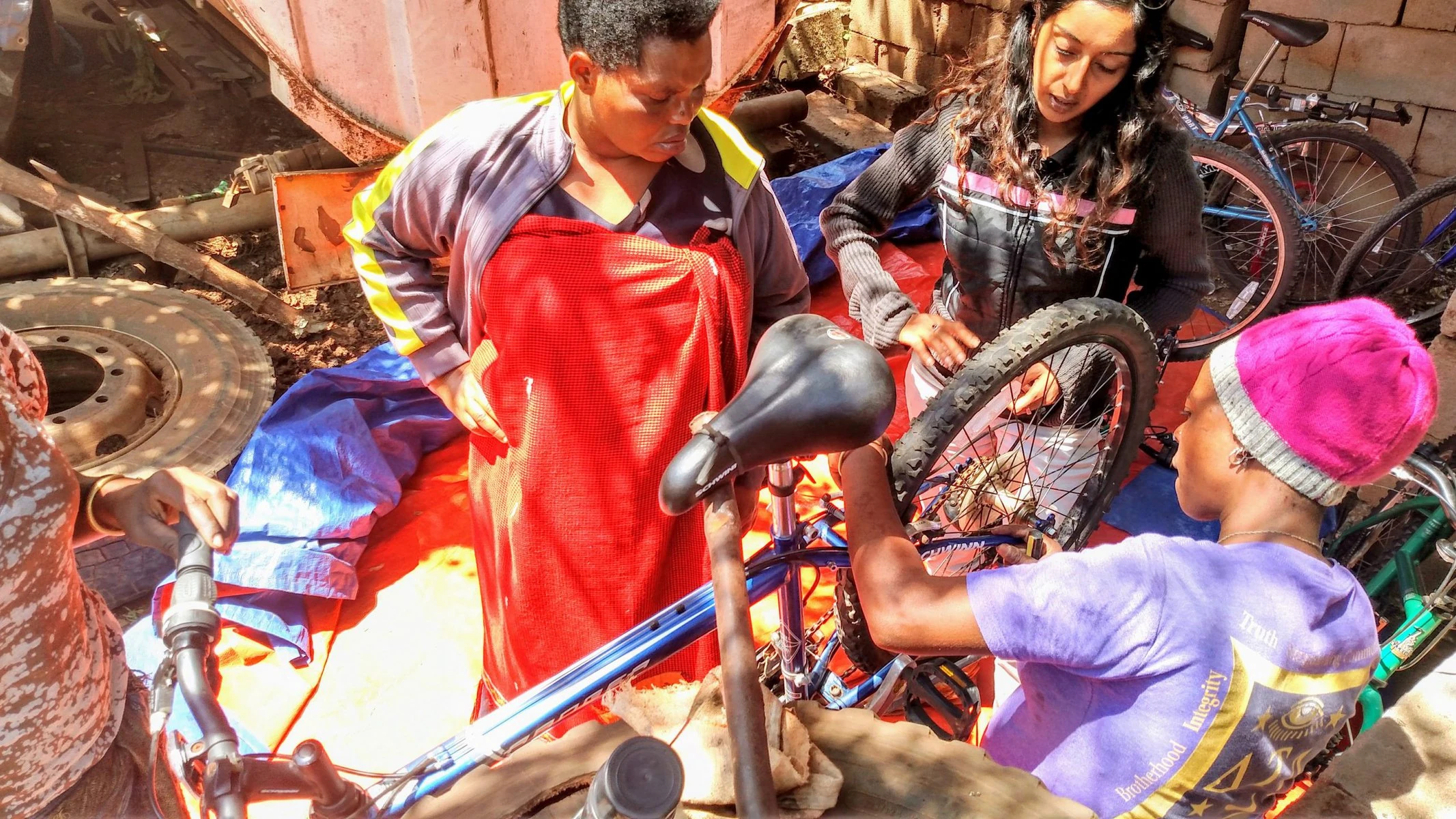
Eighty percent of new cars sold in Norway are electric.
The biggest dam removal project in US history — currently underway on the Klamath River — will open up 400 miles of fish habitat.
A New York program switching public housing tenants from gas to electric stoves led to a 35 percent drop in indoor NO2 concentrations.
Every winter, 130,000 flamingos visit Mumbai, a remarkable display of urban wildlife that has sparked a uniquely charismatic conservation movement.
Sixteen schools in Braunschweig, Germany, include happiness as a subject in their curriculums.
US solar and wind capacity continues to grow at a pace that keeps the country on track to reach net-zero carbon emissions by 2050.
In Lagos, Nigeria, 115 students are paying their school tuition with recyclable plastic bottles instead of cash.
Sales in The Body Shop’s stores with open-hired employees have risen by over 10 percent.
The Slow Flowers directory, a guide to florist shops that work with local farmers, has 850 entries.
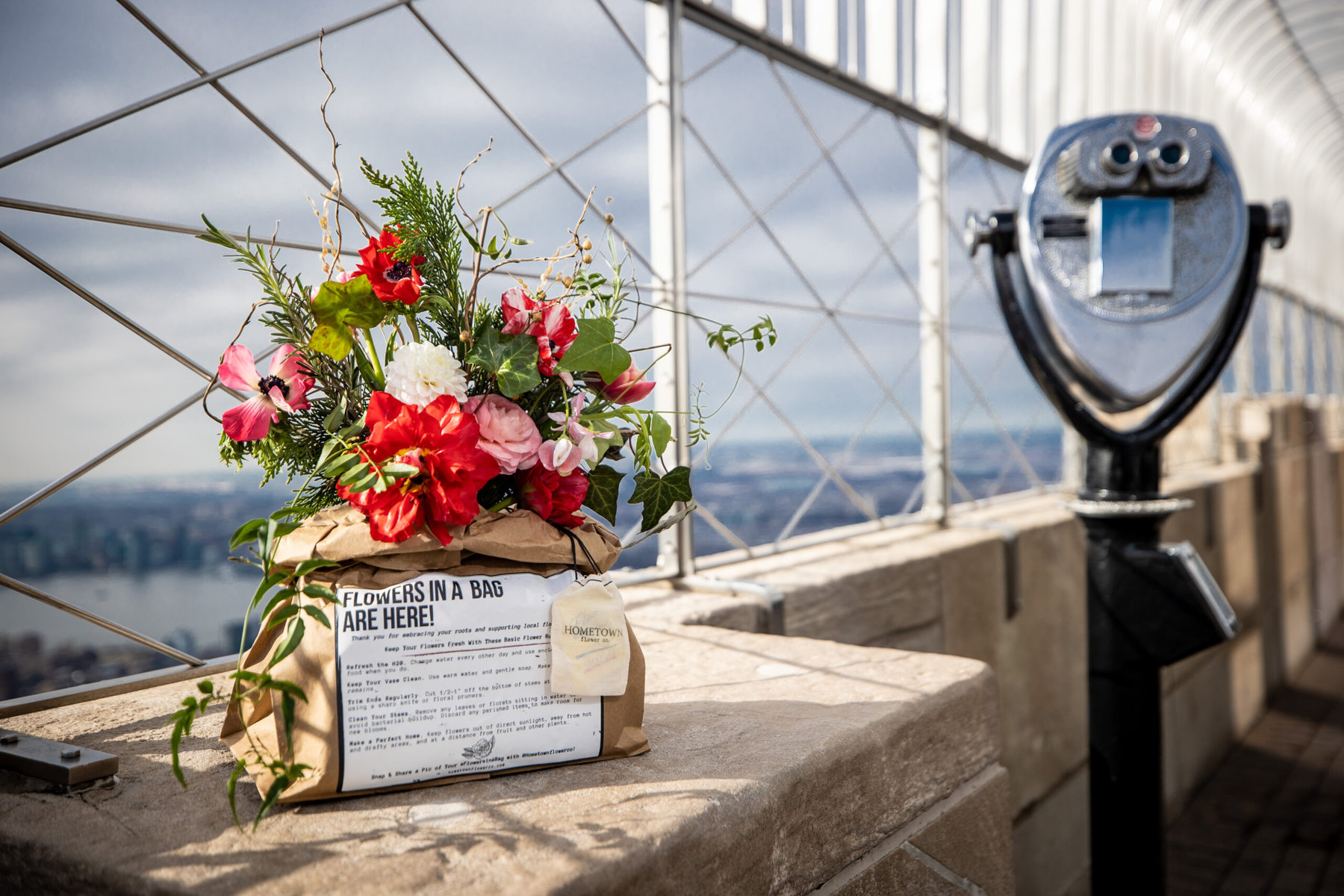
Washington is the first US state to put money toward climate change education in K-12 public schools — and at least 11 other states are following suit.
Sales of wine in aluminum cans — a more climate-friendly alternative to glass bottles — are expected to double.
In Oregon, 33,000 acres of grasslands were converted into the Zumwalt Prairie Preserve, the largest private nature sanctuary in the state.
The Civilian Climate Corps has turned 1,700 New Yorkers into skilled workers for green jobs.
Volunteers with Black Joy, an organization fighting for social justice through joyful celebration, have visited 170 towns across Oregon.
Cancer fatalities in the US are down 33 percent from 1991, amounting to 3.8 million deaths avoided.
In Jaipur, India, 40 single moms receive a guaranteed basic income that allows them to improve their lives.
At Arizona University, 260 senior citizens are living in an on-campus retirement community.
Amsterdam built an underwater garage for bicycles with space for over 7,000 bikes.
In Minnesota, more than 1,500 seniors signed on for a state agency’s free online fitness program.
On a list of the 10 US counties with the biggest increases in gross domestic product, seven have seen major wind farm construction.
A 300-unit affordable housing complex in Oakland will be built, in part, with mushrooms.

Co-buying increased by an estimated 771 percent between 2014 and 2021, helping more people buy their first home.
In California, a 400-acre oil field is being transformed into a nature preserve.
Within a month after setting up sustainable dams, one Himalayan mountainside area had at least 15 percent more vegetation.
The Inflation Reduction Act allocates $3 billion for improving roads and “removing, replacing, or retrofitting highways and freeways to improve connectivity in communities.”
A Philadelphia program that helps renters facing eviction ensured 38 percent of them got free legal representation.
Denver made 5,000 electric vehicles available to residents thinking about buying an EV.
Weighed down by negative news?
Our smart, bright, weekly newsletter is the uplift you’ve been looking for.Twenty-seven states allow students to earn industry credentials at public schools. In one South Carolina school district, 8,745 students received industry certifications in 2022.
Thirty long-dead lakes have been revived in India’s Bengaluru district.
Every public library in El Paso has a banned book section.
A program aimed at diversifying USC’s architecture program increased the percentage of Black students from 4.2 percent to 8 percent and Latino students from 15.4 percent to 26 percent.
Curved blades in next-gen hydroelectric turbines allow 99 percent of aquatic life to safely swim through them.
At one Florida school, 35 of the 147 teachers are former students.
Over 1,000 turtle eggs have been saved by a single former poacher.
The Greater Big Bend International Dark Sky Reserve spans more than nine million acres (15,000 square miles) — and is currently the largest dark sky certified place in the world.

Glass Half Full Nola has recycled 3.2 million pounds of glass in the past three years.
Five thousand students at Technological University Dublin live in toasty warm dorms thanks to excess heat from a nearby data center.
A 5,000-square-mile Peruvian national park is setting an example of how to care for both nature and people.
Students at a Rhode Island high school received $10,000 to upgrade their school — and a great lesson in direct democracy.
Over 10,000 physicians across Canada have written “green” prescriptions instructing patients to spend more time in nature.
In France, anyone who opts to repair their clothes can now get a bonus of up to 25 euros.
Using timber to expand a Stockholm landmark instead of building anew with concrete and steel reduced carbon emissions by an estimated 85 percent.
Drones are planting seeds in Canadian forests at a rate of five pods per second, helping wildfire-scarred areas recover quickly.
In 2022, the Apparel Impact Institute cut 316,451 tons of emissions and saved 2,903,575 cubic meters of water by helping fashion brands be more sustainable.
People on bikes represent 40 percent of non-pedestrian rush hour traffic in London.
When given the choice to sell their farms for commercial development or continue growing crops, 94 percent of Tokyo’s farmers decided to keep farming.
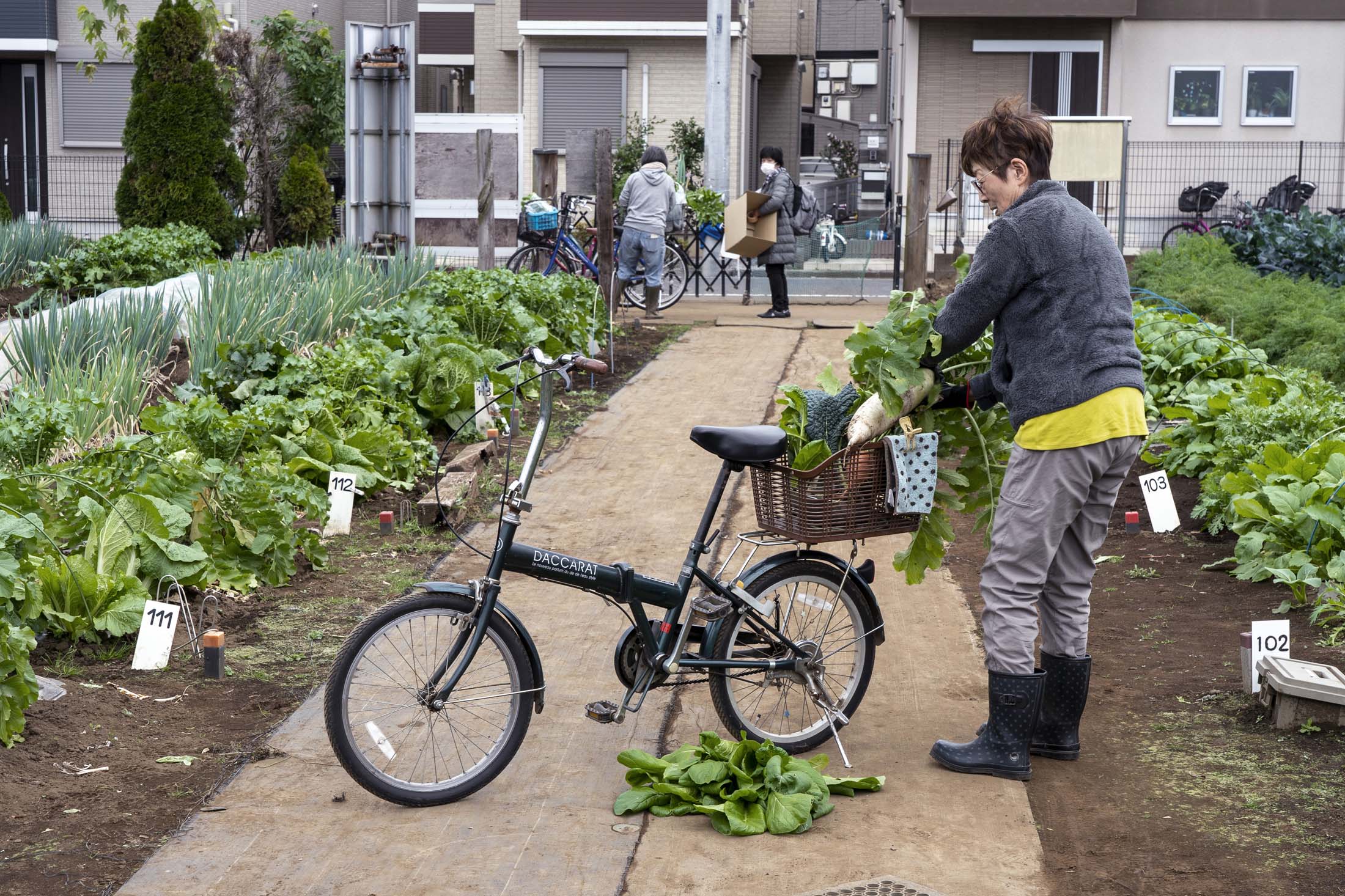
Forty two-way electric vehicle chargers are sending leftover power from EV batteries back into the electrical grid when the cars are parked at the end of the day.
Jersey City had zero traffic fatalities on city streets in 2022.
The Hunger Project is serving about 35,000 people in Uganda — fighting hunger by teaching them how to grow their own food.
A nonprofit group has removed almost 3,000 crab traps from Mississippi waters.
In an Indian village, 111 trees are planted for every newborn girl. Now, a forest is growing there.
An organization of Fukushima moms is monitoring the area’s radiation level’s by processing 2,000 samples annually of everything from home gardening produce to vacuum dust.
A 30-story apartment building in Manhattan will prevent the release of 60 percent of its boilers’ CO2 by cooling it to a liquid and mixing it into cement.
The UK government offers parents 30 hours of free childcare per week.
A Tunisian school’s solar panels produce four times the power the campus needs, allowing the school to sell energy back to the grid, which funds classes in robotics.
Fifty students are currently enrolled in a program that helps trafficking survivors attain a college degree.
Thanks to the deconstruction approach, 148,000 pounds of materials have been diverted from landfills.
The East Coast Greenway is home to 50 million car-free outings yearly.
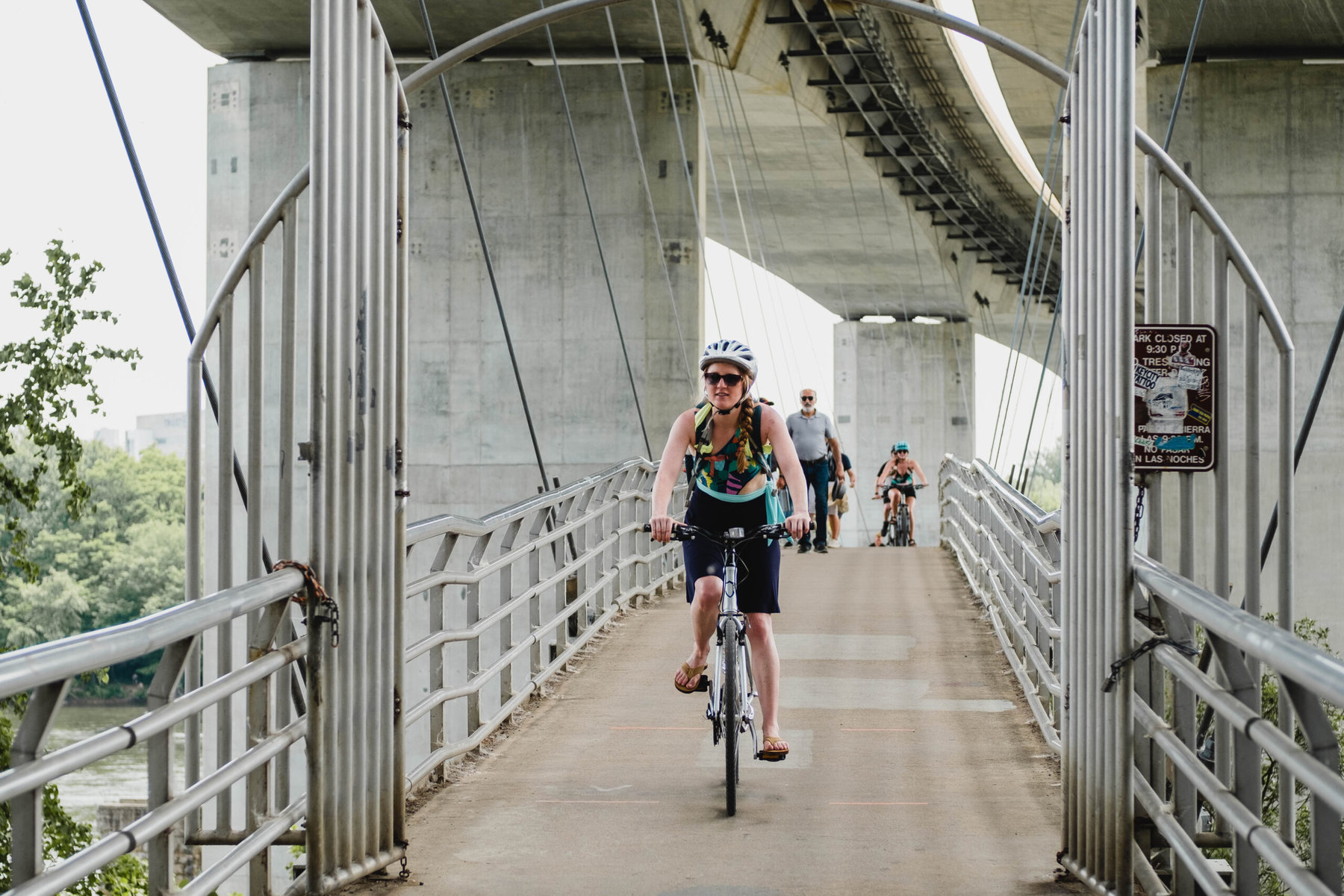
Volunteers have helped more than 70,000 amphibians to cross New Hampshire roads.
At a Swedish apartment complex, intergenerational tenants agree to interact for at least two hours per week.
After New Jersey banned single-use plastic bags, 37 percent fewer ended up on its beaches.
Recovery high school students’ graduation rate is 21 percent higher than their peers at traditional schools.
A 1,500-square-foot Boston greenhouse that yields 2,000 pounds of produce a year is fully powered with geothermal energy.
Slovenia’s child poverty rate has dropped 31 percent since 2014.
A sailing group cleaning plastic waste from England’s coast has removed over 70 tons of rubbish — and recycled 85 percent of it.
Five hundred students have re-enrolled at Detroit’s Wayne State University after the school offered partial debt forgiveness.
With small emergency rent payments to avoid evictions, a Portland shelter kept nearly 100 families out of homelessness last year.
The number of US high school students taking community college courses doubled in the last decade.
Over 2,000 companies are using a platform that connects those with plastic waste with those who want to recycle it.
In February 2023, Virginia state trains broke ridership records, carrying almost 54 percent more passengers than in February 2019.
Gas processed from New Yorkers’ decaying food scraps has produced enough renewable energy for about 2,500 homes.
During the 2023 season, 268 gray whales visited the San Ignacio Lagoon — among the only places where they seek human contact — creating a natural attraction and helping the environment.
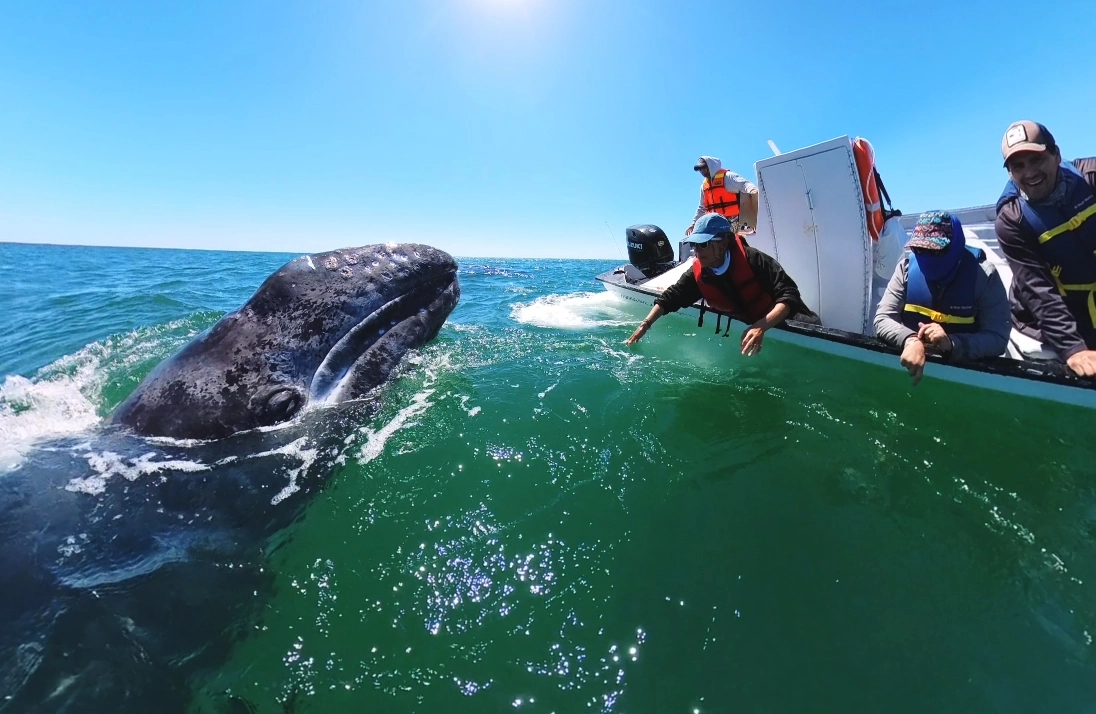
A restaurant in Minneapolis has employed 48 “fellows,” all of them formerly incarcerated.
Barefoot College started as a way to help impoverished Indian villagers learn advanced skills — today it has 250 night schools operating in 10 Indian states.
Norway has built the world’s longest purpose-built bicycling and pedestrian tunnel, with a length of 1.8 miles.
In one Los Angeles neighborhood, cool pavement is keeping the ground 1.5 degrees Fahrenheit cooler on average.
A company in the UK rents out 1,000 living Christmas trees each year so they don’t end up in landfills.
Over 200 nursing homes and assisted living centers, the majority of them in rural areas, offer telehealth mental health consultations to their residents.
Veja, a sustainable sneaker project, sells more than two million pairs of shoes a year.
In Costa Rica, 1.3 million hectares (3.2 million acres) of forest are protected thanks to an alliance between the government and landowners.
Twenty-seven young members of the A’i Kofán Indigenous community are working to protect the Amazon, with a key assist from technology.
Forty percent of Dutch train passengers ride a bike to the station.
Low-tech restoration projects — like the one happening on a river near Crested Butte, Colorado — increase vegetation around the area by up to 25 percent.
Biochar has the potential to take up 1.36 to 3 gigatons of CO2 from the atmosphere yearly.
Pastureland that includes trees can sequester five to 10 times more carbon than treeless farms.
About 6,000 women in India have been examined for breast cancer thanks to visually impaired women who work as Medical Tactile Examiners.
Wuhan, China’s sponge city projects sequester 725 tons of CO2 a year and reduce temperatures by more than three degrees Celsius.

Forty-three percent of the fabrics used in eco-friendly fashion brand Paskho’s apparel are reclaimed.
Warm Showers, the couch-surfing platform for bicyclists, has over 180,000 members in 160 countries.
As part of a plan to become a more “bio-climatic” city, Paris has pledged to plant 170,000 trees by 2026.
In just the first year after passing major housing reforms, Portland built 3.4 times more multi-family “middle housing” units than single-family homes.
A women-led company is recovering between 100 and 200 metric tons of waste monthly from Lagos’ waterways.
New York City students are practicing two to five minutes of mindful breathing daily.
Three thousand Men’s Sheds scattered around the world are helping men talk about their emotions and overcome mental health issues.
The Indian government has developed 1,050 “water villages,” where water conservation is key.
Hundreds of parents have been able to clear arrest warrants thanks to one-day clinics that also offer child care.
At least 6.3 million students in the US have access to school health centers.
A new collective that supports Black founders has already invested $25 million.
Homeowners in Massachusetts can receive incentives up to $16,000 for heat pumps and weatherization through the state’s utility-supported Mass Save program.
After becoming a protected species in 1977, northern sea otters have rebounded to about 100,000 otters in North America.
Thirty-five New Orleans restaurants participate in an oyster shell recycling program.
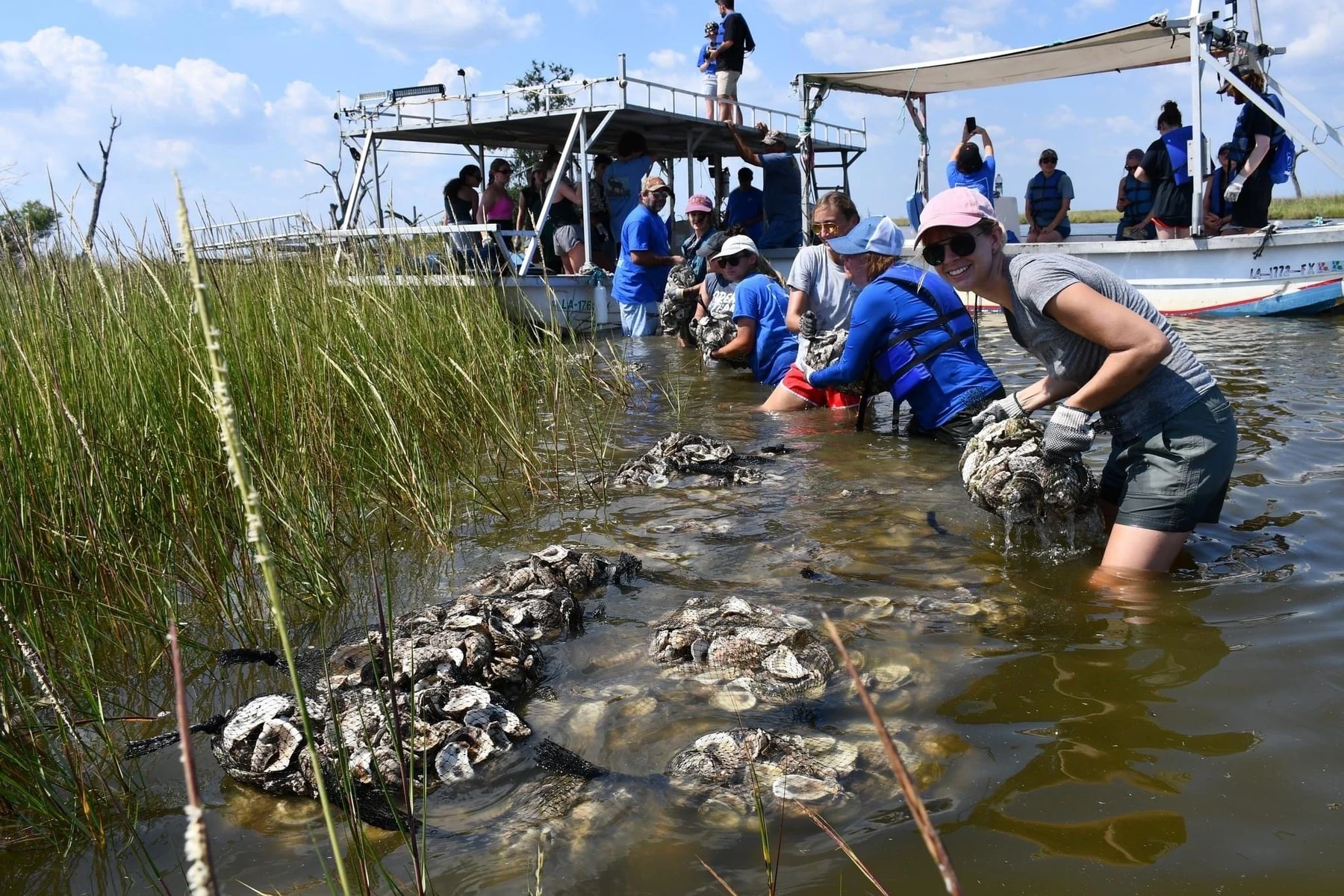
Since 2005, the Health Alliance for Austin Musicians has enabled over 6,700 musicians in the five-county area around Austin to access $144 million worth of health care services.
App-based delivery workers in New York City have been paid $17.96 per hour since July — and will be paid nearly $20 per hour by 2025.
Amsterdam’s new blue-green roofs can capture up to 97 percent of extreme precipitation, and then put the water to good use during droughts.
Over 370 community radio stations operate in districts across India, each one reaching dozens of villages with thousands of listeners.
Employees participating in workplace mental health programs report 25 percent fewer missed workdays.
Five hundred athletes from around the world participated in the 2023 Homeless World Cup.
Clients with the Financial Empowerment Center in Tulsa increased their savings by $3,000 on average and reduced their debt by an average of $2,400.
Ex-offenders who find steady jobs within six months of leaving prison are nine percent less likely to commit further crime.
Leopard numbers have tripled in Zambia’s Kafue National Park over the last four years.
Three hundred students in foster care had their tuition paid thanks to a NYC program.
More than 30 shady green corridors connect green spaces throughout Medellín, Colombia.
New Zealand banned the use of single-use plastic produce bags – preventing the use of an estimated 150 million plastic bags annually.
Six US states recently passed legislation for universal free meal programs.
A child care system that costs an average of $10 a day is rolling out across Canada.
Thanks to ice climbers and miners working together, the Ouray Ice Park had 215 routes open in 2023, compared to 150 routes in the previous year.
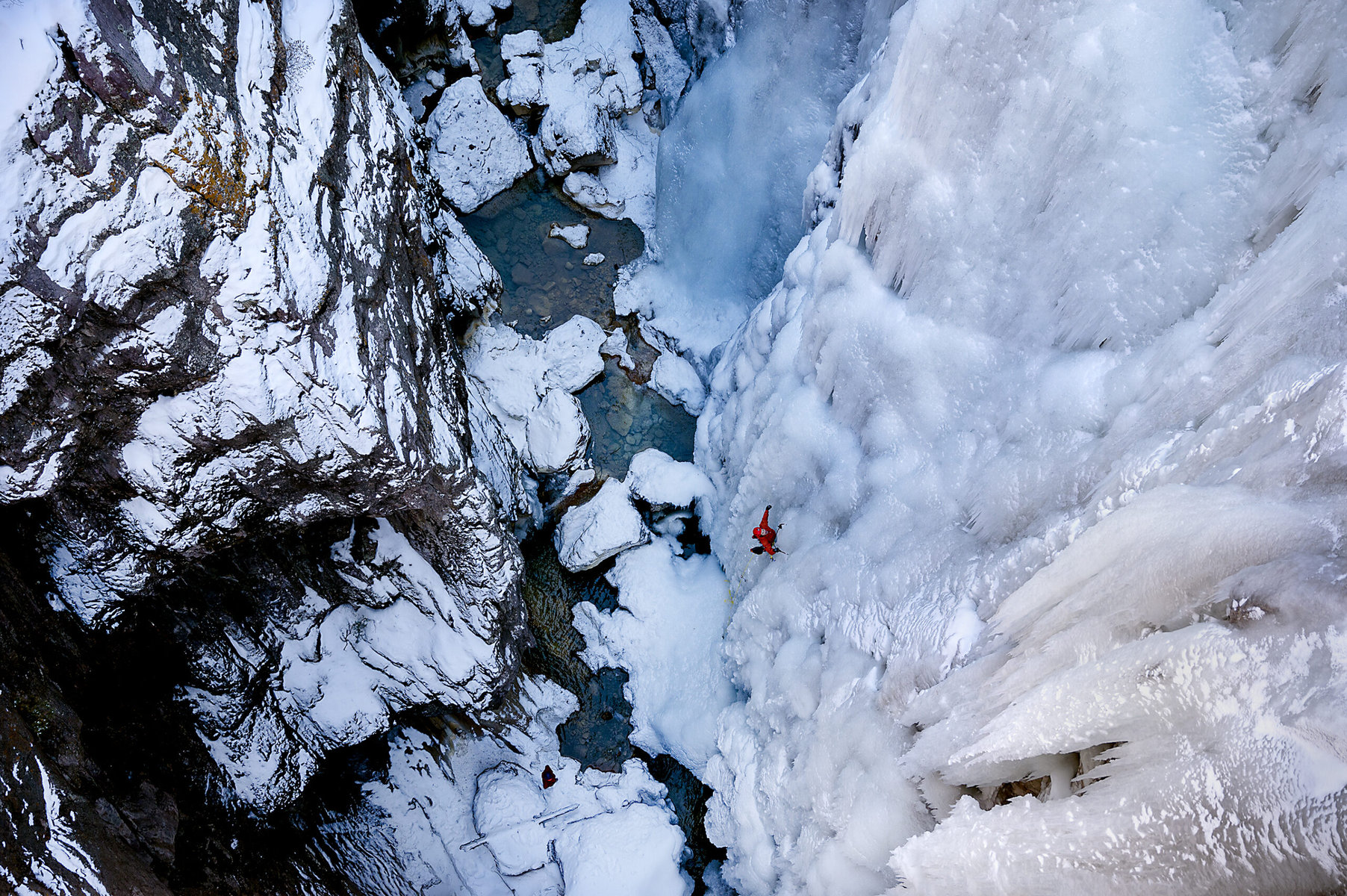
Germany saw almost 100,000 fewer daily car trips in June 2023 than it did in June 2019.
Up to five million gallons of wastewater are recycled into crystal clear potable water every day in Oceanside, California.
Twenty “care blocks” are making life easier for caregivers in Bogotá’s poorest areas.
A community garden at the site of a former mine serves approximately 2,000 people per month.
Thirty-nine projects are being developed in Barcelona thanks to the money coming from tourism taxes.
The Coast Miwok Tribal Council in California’s Marin County purchased 26 acres of rural land on what was historically Coast Miwok territory.
Detroit has reduced veteran homelessness by approximately 60 percent since joining the Built for Zero program in 2015.
Over seven million trees have been planted to reforest the area surrounding Jharbagda, India.
The Good Grief Network has more than 50 climate support groups nationwide.
The first utility-scale solar panel recycling plant in North America can process up to 7,500 panels per day.
More than 80 Black climbers have joined Oakland’s Black Rock Collective.
Seventy-three fountains, some of which provide cooling mist in the summer, will supplement the 1,200 water points available in Paris streets, cutting out the need for huge amounts of plastic.
A recent report shows that renewables could supply 50 percent of electricity worldwide by 2030.
TeleHelp Ukraine has facilitated over 1,400 virtual consultations to Ukrainians in distress, in sessions often conducted by providers thousands of miles away.
The average stay at a retreat in Japan for those seeking to reintegrate into society is 11 months.
Surf therapy, a unique mental health treatment, is offered in 30 countries.
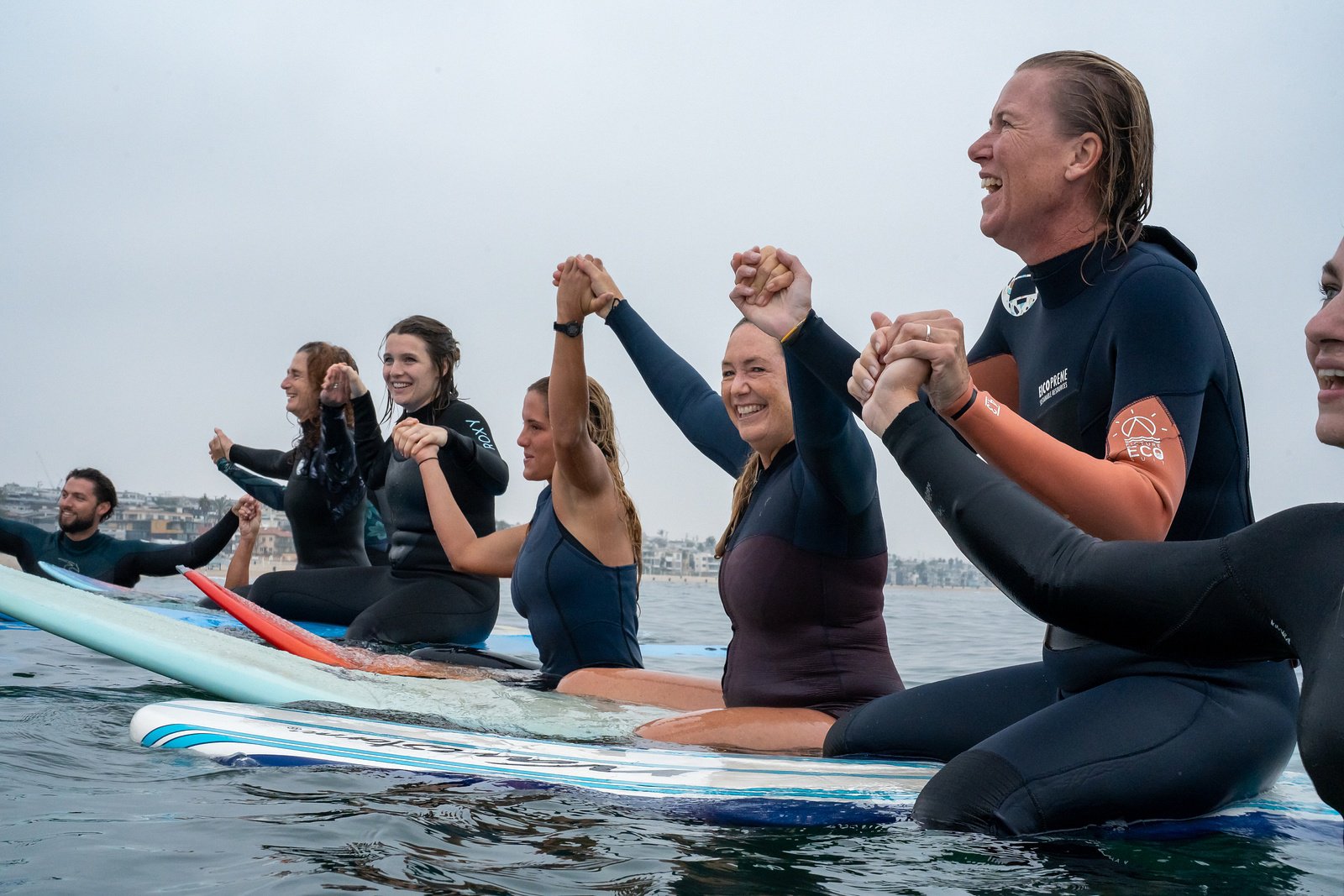
In India, 130 to 400 children of informal laborers receive care at Sangini childcare centers.
There are now 158 protected ocean ‘Hope Spots’ around the world.
A nonprofit offering pro bono therapy has served over 3,500 Black men in the last 5 years.
In 2020, over 50 percent of Oregon’s electricity came from renewable resources.
Maine has already blown past its goal of installing 100,000 heat pumps by 2025.
Around 500 adults in five states have earned their high school diplomas thanks to the Goodwill Excel model.
Over the course of 10 years, two Indian activists — with help from their network of over 2,000 informants — have prevented 4,500 child marriages.
Zero Foodprint has funded 96 projects impacting over 7,000 acres with a benefit equivalent to restoring over 80,000 tons of emissions.
In Lima, fog catchers collect between 200 and 400 liters of water a day.
Up to 300 Kenyan kids learn about space at each of astronomer Susan Murabana’s monthly “Star Safaris.”
Activist Diane Wilson collected 2,400 samples in ziplock bags, containing an estimated 26 million plastic pellets, to help her win a major settlement against an industrial polluter.
In a conservation effort, the US Herbarium completed a seven-year project, uploading 3.8 million images that are now freely available for anyone to peruse.
Among California’s 25 largest school districts, more than two-thirds now serve non-meat, non-dairy entrees a minimum of once a week.
There are 140 We Rock the Spectrum gyms — specially designed for children with sensory processing disorders — in eight countries.
At least 14 million trees have been planted across the world using the Miyawaki method, spanning 19 countries and 2,700 projects.
Desert-dwelling pastoralists are embracing hydroponics to grow crops with 95 percent less water than conventional farming.
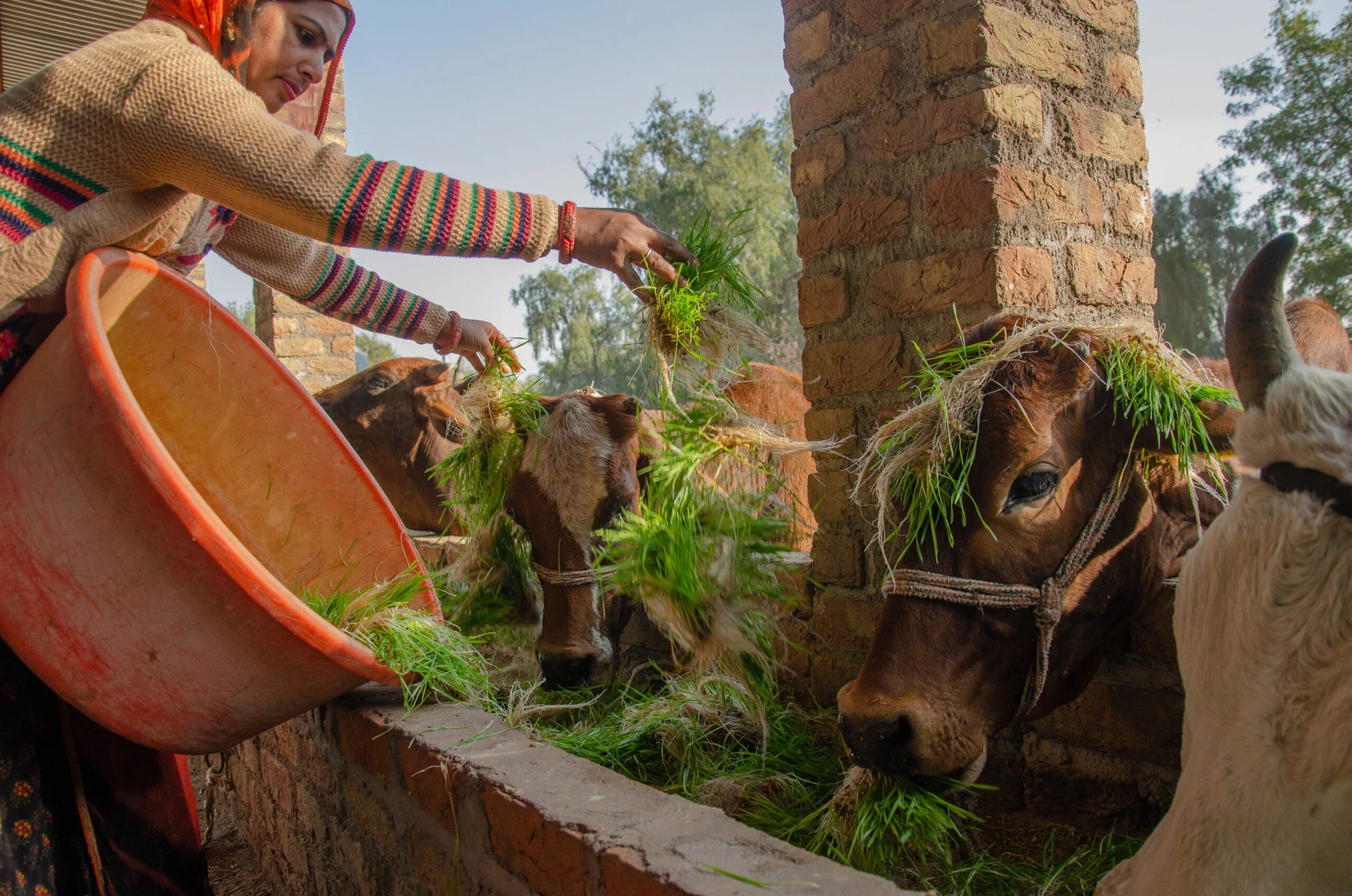
Zion National Park’s 26 shuttle buses are being replaced by an all-electric fleet.
Three hundred incarcerated people are the judges of a new major US book award.
More than 15 cranberry bogs in Massachusetts are being restored to wetlands.
A tech firm helping disadvantaged people to learn job skills using VR has 30 partnerships in 18 states.
About 1,500 life stories of elderly patients have been produced to help their caregivers get to know them better.
Over 500 people have learned to build artificial glaciers that help farmers in high altitudes get through seasonal droughts.
Nearly 200 people in rural Colorado have been trained in how to intervene when they notice someone in a vulnerable mental state.
There are now 76 bears spread across some 5,700 square kilometers of the French Pyrenees mountain range — the highest number for a century.
An organization that helps people coming out of foster care, incarceration and homelessness to find jobs in the film industry has more than 270 alumni.
A Seattle-based program will provide monthly cash assistance to 150 Indigenous families.
Hundreds of community fridges bolster access to food in cities all over the US.
Wetlands can filter almost 50 percent of nitrate runoff from farmland before it enters waterways.
In a flood-prevention victory, Hoboken, New Jersey’s ResilienCity Park collected more than 1.4 million gallons of rainwater during a storm last fall.
An organization focused on depaving has worked on 75 projects in Portland’s schoolyards, churches and other community spaces.
In 2022, FoodCycle’s pop-up cafes served nearly 500,000 meals to 62 communities across the UK, saving 209 metric tons of food from going to waste.
Over 2.5 million people living on river islands in the Indian state of Assam access health care thanks to boat clinics.
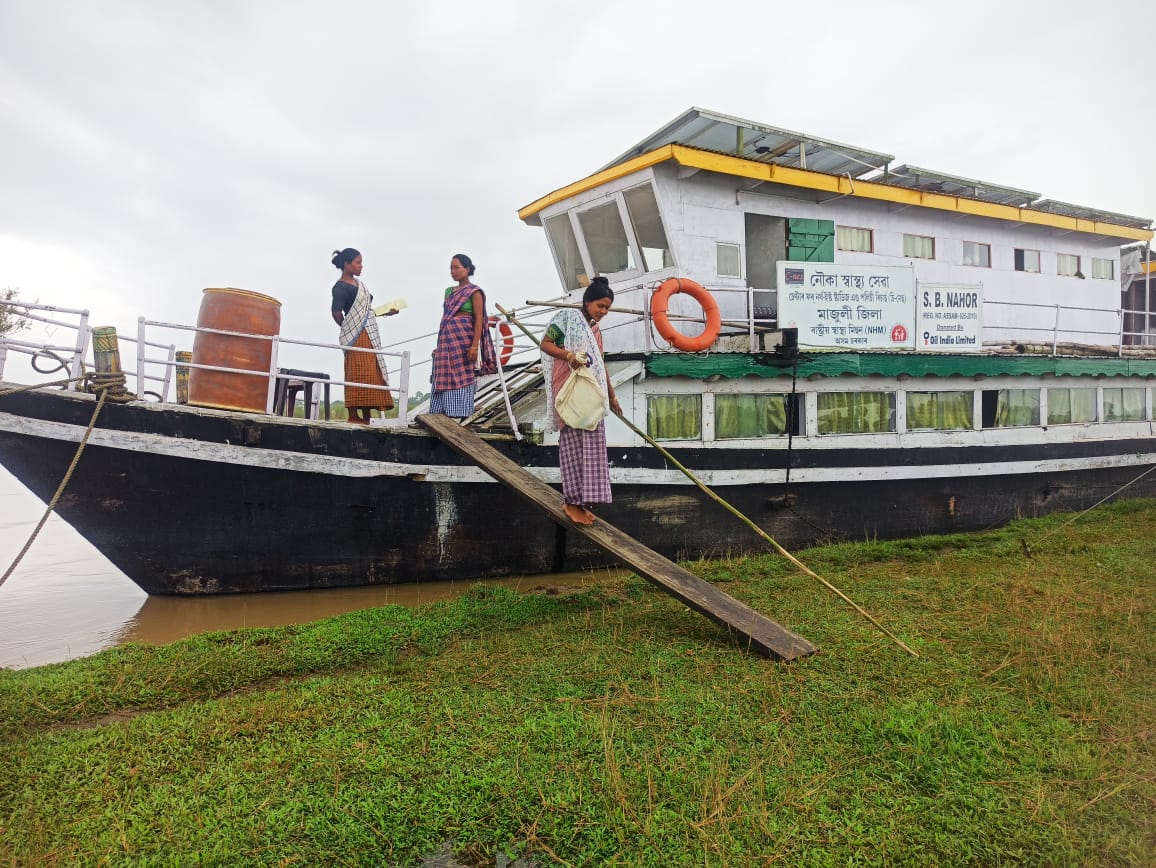
One hundred fifty hairdressers in West and Central African cities have become “mental health ambassadors.”
Thanks to a program that provides internet access, 3,100 migrant and seasonal farmworkers in North Carolina can get health care and contact their families.
After a guerilla art campaign resurrected El Paso’s streetcar, the system is now serving upwards of 50,000 passengers per year.
Nearly 40,000 bamboo homes have been built for Pakistanis displaced by flooding.
One organization that helps student networks provide emergency contraception has worked with students at more than 200 college campuses.
A 1,100-panel solar farm is saving the Standing Rock Sioux Tribe $10,000 per year.
Connecticut became the first state where those in prison can make calls for free, saving families $10 million a year.
Thanks to a massive dam removal project on the Penobscot River, 2,000 miles of habitat opened up for salmon and other species.
A partnership between public defenders and advocates keeps close to 90 percent of clients out of jail.
All the timber used in the new Portland International Airport roof came from less than 300 miles away.
Two kiwi hatchlings were found in the wild near the city of Wellington — for the first time in years.


